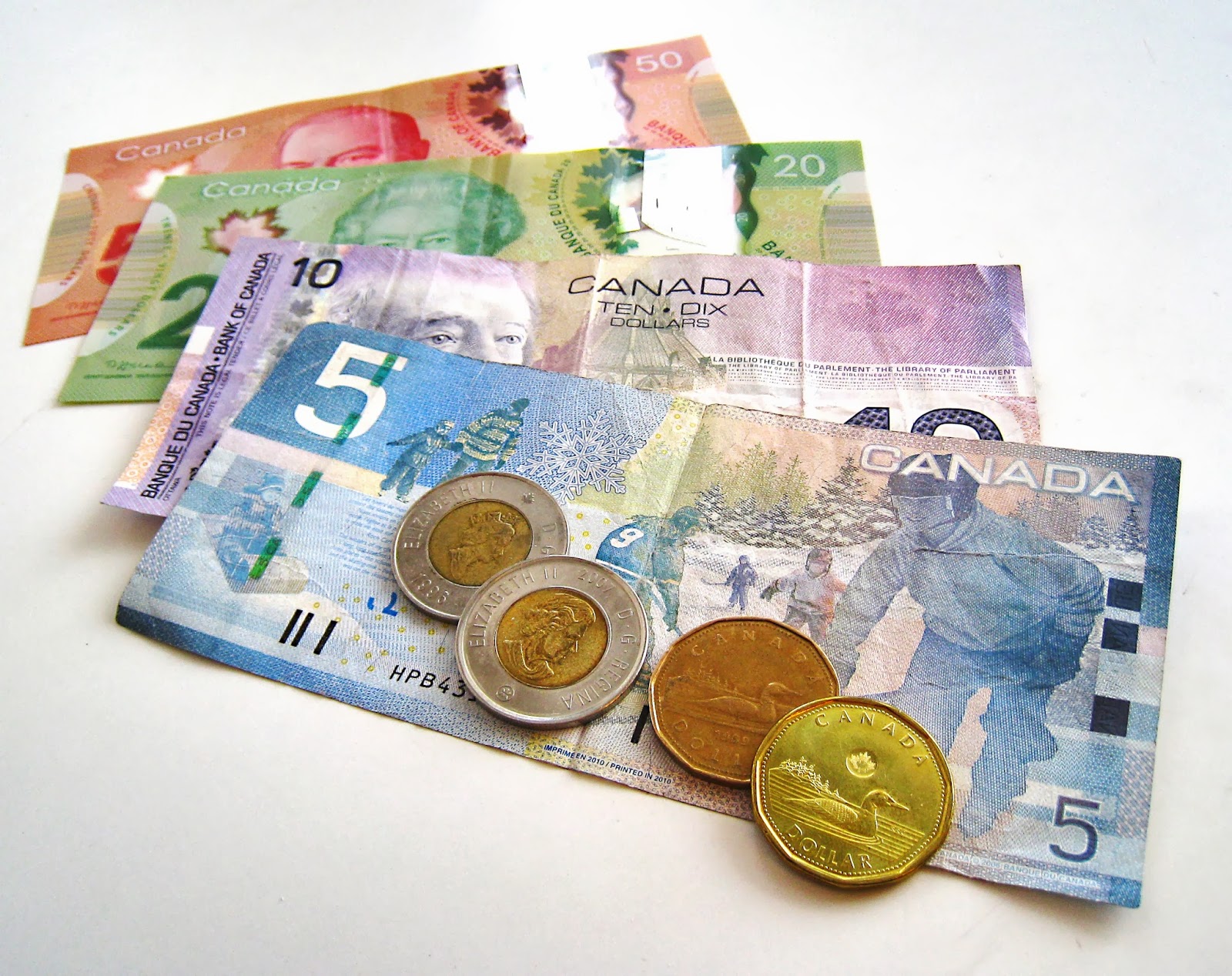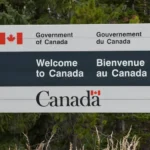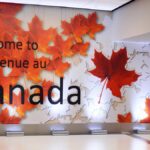
Are you interested in becoming a permanent resident in Canada and want to know what to budget for? If yes, then this post is for you!
One question I get a lot of times is, how much will I spend to become a permanent resident in Canada as an immigrant?
The answer to this question is, however, not as straightforward as many people think. But this is a budget template to guide you on what to prepare for.
As of January 2026, you will spend AT LEAST $2,220 CAD to become a permanent resident in Canada. This is based on certain conditions, further explained here. And a breakdown of the budget is also presented below.
In addition to this, you will also show your proof of settlement funds, which is based on the program you are applying for, and the number of family members in your application.
Any time I get the question “how much will I spend to be a permanent resident in Canada?”, the first answer in my head is “it depends”. What you will spend depends on many things (family size, profile, PR Program, exchange rate, etc).
When applying for permanent residency in Canada, the general things you will spend money on are:
- ✅Language Tests
- ✅Degree Assessment (Educational Credential Assessment)
- ✅Medical Test
- ✅Application and Biometric fees
- ✅Police Certificate
- ✅The settlement funds (you only need to show proof of the money you have for this)
- ✅Other miscellaneous documents (i.e., International Passport, Transcripts, Courier Services, etc)
The $2,220 CAD budget above is based on the conditions that you are:
- ✅A SINGLE applicant
- ✅Writing only one of the language tests (English/French), and writing it once
- ✅Doing your application yourself (no authorized representative)
- ✅Cost of getting your transcripts for the Educational Credential Assessment (and other fees, i.e for passports and courier services are not included)
Budget Breakdown
- ✅Language Test: $300 or more (cost may vary depending on the local currency or if you are applying as a family and your spouse is doing the language test as well, or if you are doing a second language test in French).
- ✅Educational Credential Assessment: $250 or more (there are additional costs if you are applying as a family and your spouse needs to do the assessment to give your application more points).
- ✅Medical Tests: $60 or more (this is a Naira equivalent and could be more based on the country you are doing the test. It is also a higher fee if you are applying as a family and doing the medical test for other family members).
- ✅Application Fee, Right of Permanent Residence Fee: $1,525 (The $1,525 covers the $950 application fee and $575 for your right of permanent residence fee). This amount is also just for one person, and if you have a spouse, you will pay an additional $1,525 for your spouse, and $260 for each child you have, if you have children in your application.
- ✅Biometric fee: $85 (this is a separate amount for the biometrics of one applicant; it is $170 if you are applying as a family).
- ✅Police Certificate: $50 (this is the Naira equivalent of the Police Certificate for one person in Nigeria. The amount may be more based on the country you are getting the certificate from, or if you need it for more than one person).
- ✅Settlement funds (Proof of funds) – This is based on the program you are applying for and the number of family members.
As mentioned, you may also need to show proof of settlement funds. This will depend on the PR program and family size. Click on the link in each program below for details of the total amount you need for your application.
For Express Entry
For Atlantic Immigrant Pilot Program
For Rural and Northern Immigration Pilot
The Cost for those applying as a family.
The additional cost for those applying as a family will be based on several factors. But the cost to prepare for as a family can be calculated using the breakdown above. The additional cost to have in mind are:
- ✅Application and right of permanent residence fee for the Spouse (as explained above).
- ✅Application and right of permanent residence fee for children (if you have any).
- ✅Family biometrics fee.
- ✅The medical test fee for additional family members.
- ✅Cost of the spouse’s language test and degree/credential assessment.
- ✅Cost of the police report for the spouse and children (over 18 years of age).
- ✅Flight fees for the entire family (when approved).
- ✅Proof of funds based on the number of people in your family (as explained above)
Who does not need proof of funds?
You don’t need to show that you have enough money to support yourself and your family if
- ✅you’re applying under the Canadian Experience Class or
- ✅you’re authorized to work in Canada and you have a valid job offer, even if you apply under the Federal Skilled Worker Program or the Federal Skilled Trades Program
What is accepted as proof?
Funds must be readily available to you. For example, you can’t use the equity on real property as proof of settlement funds.
You also can’t borrow this money from another person. You must be able to use this money to pay the costs of living for your family (even if they aren’t coming with you).
If your spouse is coming with you, you can count the money you have together in a joint account. You may be able to count money in an account under your spouse’s name only, but you must prove you have access to the money.
The funds must be available both when you apply and when (if) we issue you a permanent resident visa. You must prove to an immigration officer that you can legally access the money to use here when you arrive.
For proof, you must get official letters from any banks or financial institutions where you’re keeping money.
Letter(s) must
- ✅be printed on the financial institution’s letterhead
- ✅include their contact information (address, telephone number and email address)
- ✅include your name
- ✅list outstanding debts such as credit card debts and loans
- ✅include, for each current bank and investment account, the
- account numbers
- date each account was opened
- current balance of each account
- average balance for the past 6 months
Additional costs for all applicants:
- If you, your spouse, or other family members (who are over 18 years of age) have lived in any other country for 6 months or more in a row in the last 10 years, you also need a Police Certificate from those countries. You do not need a Police Report for the time spent in Canada.
Lastly, you may also incur additional costs on:
- ✅Transportation
- ✅Getting your transcripts or certificates
- ✅Rewriting your IELTS
- ✅Writing a second language test (in French) for more points
- ✅Degree assessment or language test for your spouse, and/or
- ✅Provincial nomination (if needed)
Final Note
My advice for you is to take it one step at a time!
If you have little money, start with getting your passport. Then start the degree assessment (because this takes more time to finalize), then write your language test, and start saving for your proof of settlement funds, etc.
If there’s one thing I know for sure, it is that only a few people have all the amount they need when they started the journey. This is a marathon, not a sprint….. and there is a lot of figuring out along the way.
And for those asking, you will only provide your proof of settlement funds, and pay the application and biometric fees when you are ready to submit all final documents.
For Express Entry applications, this is after you have received the Invitation To Apply (ITA). You will also be given up to 60 days from when you are invited to submit all final documents and make the required payments. This gives you more time to put things together.
I hope this is of help to someone, and if you find it useful, do not forget to bookmark and share it with others.
For more information on the permanent residence application process, requirements, and other information to ensure a successful application, please see the resources already compiled here.
If you have questions on Career & Personal Development, Personal Finance, or Building a Personal Brand and want to reach out to us, check what we have here.
DISCLAIMER: The posts and information on this website are not legal advice. We are not Canadian Immigration Consultants and do NOT provide Canadian Immigration Services. For any authorized Canadian Immigration information, services, or support, please check the Government of Canada website at www.canada.ca/immigration
© Olu of Canada





Hello, am a student currently studying masters in public health in the United Kingdom. Would love to know the best and possible way to migrate to Canada and how to kick start about this. Would love to hear from you. Thanks
Hello,i’m a zimbabwean currently in china.I wanted to know if it’s possible to apply for a permanent residence while outside the county (Canada).If not possible what other available options i can take to move to Canada
It is possible. You can apply just like everyone else using the express entry program.
How can I apply. I am a Nigerian who study computer Engineering. Am also done with my National Diploma trying to apply for a Bsc scholarship in Canada.
Hello sir, concerning the proof of funds, can it be done in another way like another person helps if someone doesn’t have means to gather such amount?
For Permanent resident applications, the money must be in your account, and in your name. Or in the name of your spouse if you are immigrating with your spouse. Family members can support you and give you the funds as a gift, but they must have released the funds to you to put in your account.
How much are we talking about for this prove of funds in your account??
Can someone without a BSc degree apply for the permanent residence, this is to get the degree assessment part clearer.
Thanks
Yes, they can. But it likely won’t be through the express entry route. Because that’s a point based program, and without a degree their points will be very low for that
Thanks for the information. Please from your experience which of these two English language test would you recommend between CELPIP and IELTS (general) for permanent resident applicant?
They are both the same to me.
Good evening sir, can someone with ssce result and handwork apply for permanent residence
This will depend on the type of PR program, and their work experience. Check programs like Atlantic Immigration, Rural and Northern Pilot, and some provincial nominee programs.